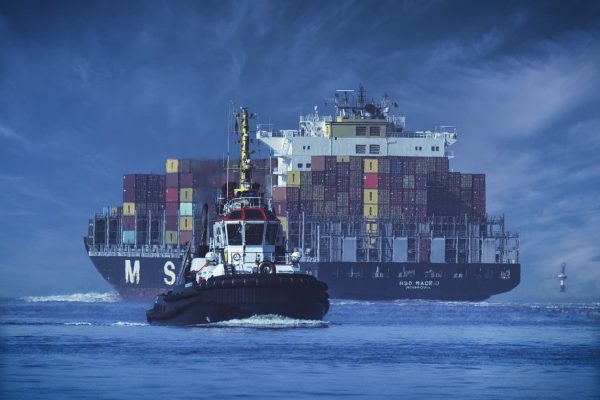What is a Deck Officer?
A deck officer in the merchant navy is a professional mariner responsible for the navigation, safety and operation of a commercial vessel. This includes charting a course, navigating hazardous waters, and overseeing the ship’s crew. Deck officers hold a variety of ranks, including the titles of Captain, Chief Mate, and Second Mate. They typically hold a license issued by a national maritime authority, must have completed a formal training program, and have the necessary sea-going experience.
Deck officers in the merchant navy typically work on commercial board vessels such as cargo ships, container ships, tanker ships, bulk carriers, and cruise ships. They are responsible for the safe navigation and operation of the vessel while at sea and may also be involved in the loading and unloading cargo. They may work on ships that travel internationally, visiting ports worldwide. Deck officers typically work long hours, with time spent on board the ship followed by time off. Their schedule is determined by the shipping company and can vary depending on the type of vessel and the specific voyage.
Deck Officer Comand Hierarchy
On a merchant navy vessel, the highest-ranking deck officer is typically the Captain or Master of the ship. They are responsible for the operation and management of the ship, including the crew’s navigation, safety, and well-being. They are also responsible for the ship’s compliance with international maritime laws and regulations.
Under the Captain, there are typically other deck officers of lower rank, such as the Chief Mate or First Mate and the Second Mate or Third Mate. These officers assist the Captain in the ship’s management and have specific responsibilities such as navigation and cargo operations. They also act as the Captain’s deputies and may be in charge of the vessel in the Captain’s absence.
All the deck officers and engine officers report to the ship’s owner, who a ship manager or operator represents. They are the ones who are responsible for the commercial and operational aspects of the ship, such as chartering, cargo operations, and compliance with national and international regulations.
How To Become a Deck Officer?
To become a deck officer in the merchant navy, you will typically need to complete a formal training program and gain sea-going experience, pass an examination and obtain a license issued by a national maritime authority.
The specific requirements for becoming a deck officer can vary depending on the country and the type of vessel you wish to work on, but generally include the following:
Education: You will typically need to have completed secondary education and have a background in mathematics and physics. Some countries require that you have completed a degree or diploma in maritime studies or nautical science.
Training: You will need to complete a formal training program, which may include both classroom instruction and sea-going experience. This can occur at a maritime academy, college or maritime training centre.
Sea-going experience: You will need to gain experience on a commercial vessel, typically as a cadet. The amount of sea-going experience required can vary depending on the country and the type of license you seek.
Examination: You will need to pass an examination, which may include both written and practical components, to demonstrate your knowledge and skills.
License: After passing the examination, you will obtain a license issued by a national maritime authority, such as the United States Coast Guard, the United Kingdom’s Maritime and Coastguard Agency or the Indian Directorate General of Shipping.
Continuous Professional Development: You must maintain your certification and license by passing regular medical examinations and meeting the sea time requirements.
It’s also important to note that depending on the country and vessel you want to work on, other certifications or qualifications may be required, such as STCW (Standards of Training, Certification, and Watchkeeping) or GMDSS (Global Maritime Distress Safety System) certifications.
Skills and Attribute of Deck Officers
To be a successful deck officer cadet and ultimately a deck officer in the merchant navy, some certain skills and attributes are important to possess. These include:
Strong analytical and problem-solving skills: Deck officers are responsible for making important decisions that can significantly impact the safety and well-being of the ship and crew. Good analytical and problem-solving skills are essential for making quick and accurate decisions in challenging situations.
Leadership ability: Deck officers are responsible for leading and managing a ship’s crew and must communicate effectively and inspire confidence in others.
Good physical and mental health: Deck officers must be physically fit and able to work long hours in challenging conditions. They also need to be mentally resilient and handle the pressure of working in a high-stakes environment.
Strong navigational skills: Deck officers must navigate a ship safely and efficiently, which requires a solid understanding of navigational principles and the ability to read and interpret charts and weather forecasts.
Technical knowledge: Deck officers should have a good understanding of the technical aspects of ship operations, including the mechanics of propulsion, steering, and cargo handling systems.
Communication and teamwork: Deck officers should have excellent communication skills, both oral and written and able to work well in a team. They must be able to work effectively with other officers, crew members, and external stakeholders such as port authorities and other ships.
English language skills: English is the standard language used for communication in the maritime industry, and it is important that deck officers can speak fluent English. This is typically proven via certification such as the Marlins English Test.
Adaptability and flexibility: Deck officers must be able to adapt to new and changing situations, as well as work effectively in a multicultural environment.
Attentiveness and discipline: Deck officers should be aware of their surroundings and the surroundings of their crew and ship and must be able to follow safety procedures and regulations at all times.
Career Opportunities for Deck Officers
Career Opportunities As A Deck Officer In the Merchant Navy
Deck officers in the merchant navy typically have several career options available to them, including:
Ship Captain: Deck officers can work their way up to the position of a ship captain, also known as the master of the vessel, who is responsible for the ship’s operation.
Navigation Officer: Deck officers can also become navigation officers, who are responsible for planning and executing a ship’s voyage and ensuring the ship’s safe navigation.
Safety Officer: Deck officers can also become safety officers responsible for ensuring compliance with safety regulations and procedures.
Cargo Officer: Deck officers can also become cargo officers, who are responsible for the safe loading, unloading and handling of cargo
Marine Surveyor: Deck officers can also become marine surveyors, who are responsible for inspecting ships and marine structures to ensure compliance with safety regulations and issuing certificates of compliance.
Port Captain: Deck officers can also become port captains responsible for operating ships in a specific port or region.
Opportunities For Deck Officers Beyond The Merchant Navy
On the other hand, Deck officers in the Superyachts, Offshore oil and gas typically have a few different career options:
Yacht Captain: Deck officers can work their way up to the position of a yacht captain, who is responsible for the overall operation and safety of the yacht.
First Mate: Deck officers can also become first mates, who assist the captain in the operation and navigation of the yacht.
Engineer: Deck officers can also become engineers responsible for maintaining and repairing the yacht’s systems and equipment.
Safety Officer: Deck officers can also become safety officers responsible for ensuring compliance with safety regulations and procedures.
Charter Manager: Deck officers can also become charter managers responsible for managing the yacht’s charter business, including coordinating with clients and managing the yacht’s itinerary.
Offshore Installation Manager: Deck officers can also become Offshore Installation Managers, who are responsible for the daily operations of an offshore oil or gas platform, including safety, logistics, and maintenance.
In general, deck officers in the merchant navy, superyachts, and offshore oil and gas can have a rewarding and challenging career with many opportunities to advance and specialise.
How Much Do Deck Officers Make In The UK?
The salary of a deck officer in the UK can vary depending on factors such as experience, type of vessel, company, and location. However, here are some general estimates of the salary range for deck officers in the UK:
Junior Deck Officer: Starting salary for a Junior Deck Officer is around £20,000 – £25,000 per year.
Deck Officer: A Deck Officer can earn £30,000 – £40,000 annually.
Senior Deck Officer: A Senior Deck Officer can earn £45,000 – £60,000 annually.
Master Mariner: A Master Mariner can earn £60,000 – £80,000 annually.
Please note that these figures are approximate and can vary depending on several factors, such as the type of ship, working area, and the company. Also, the salaries for officers working in offshore and superyachts can be higher than the ones working in the merchant navy.
The maritime industry offers an attractive package of benefits, such as free accommodation, food, medical care, industry-specific tax breaks, subsidised travel and other benefits, so the salary should be seen in that context.
Become a Deck Officer Cadet In The UK
There are several ways to find a deck officer cadetship in the UK:
Apply directly to shipping companies: Many shipping companies, such as P&O, Maersk, and CMA CGM, have their cadet training programs. You can find a list of shipping companies on the UK Chamber of Shipping website and apply directly to them.
Apply through maritime training institutions: Some maritime training institutions, such as Warsash Maritime Academy and the Marine Society and Sea Cadets, offer cadet training programs in partnership with shipping companies.
Apply through maritime recruitment agencies: Several agencies specialise in maritime jobs, such as WRS Tech, Faststream and V.Ships. You can contact these agencies to inquire about available cadet training programs.
Apply through the MNTB: The UK Maritime and Coastguard Agency (MCA) and the Maritime and Coastguard Agency (MCA) have a national cadetship scheme to train and develop Deck and Engineer Officer Cadets.
Networking: Attend maritime-related events, such as job fairs, conferences, and networking events, to learn more about available cadet training programs and to make connections with industry professionals.
It’s worth noting that most of the companies in the UK, substantial shipping companies, will have an application process that is usually open for some time, so you have to keep an eye on the company’s website or recruitment agencies’ website to stay informed. Also, meeting the minimum entry requirements, such as educational qualifications and physical fitness, is important for any cadetship.




